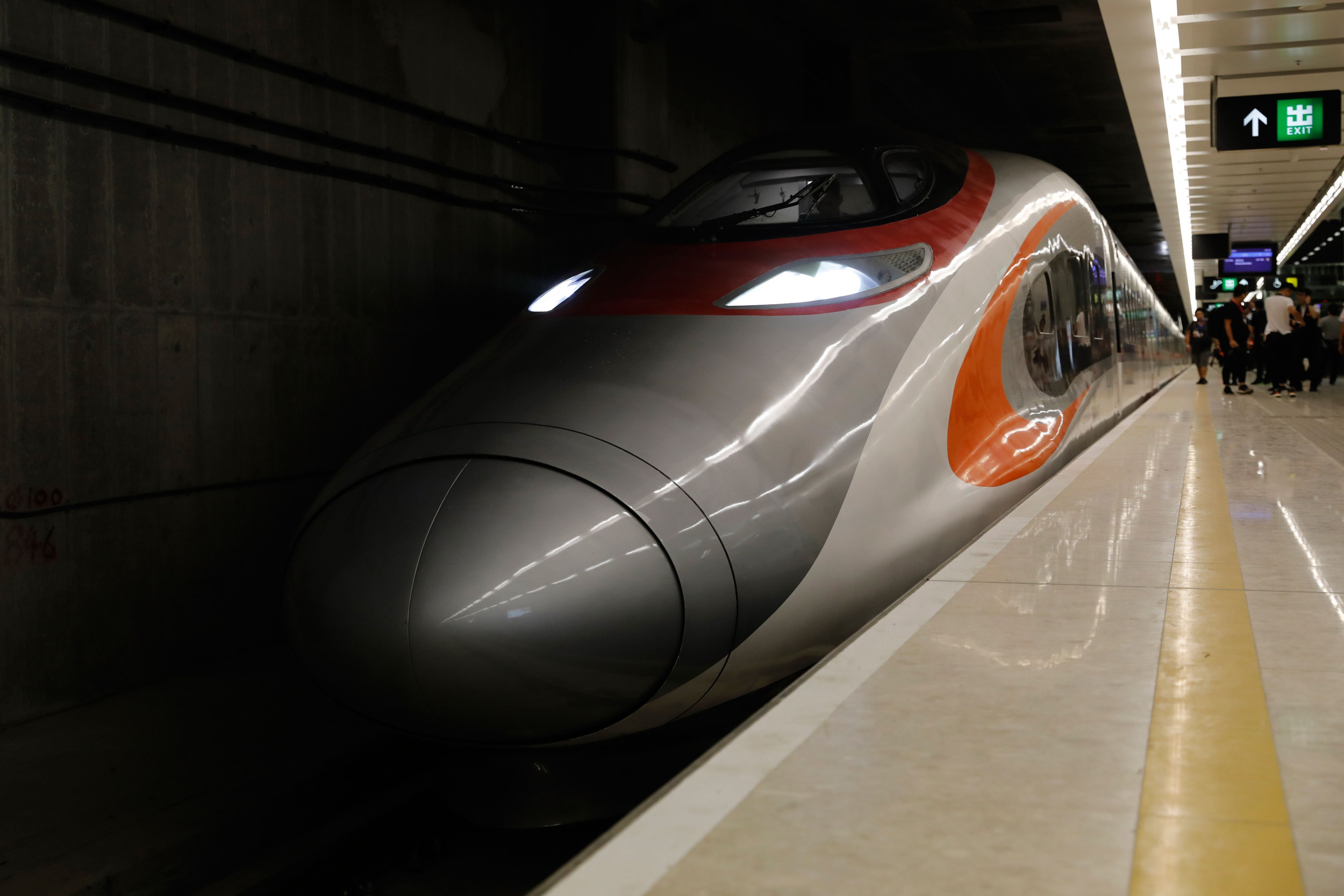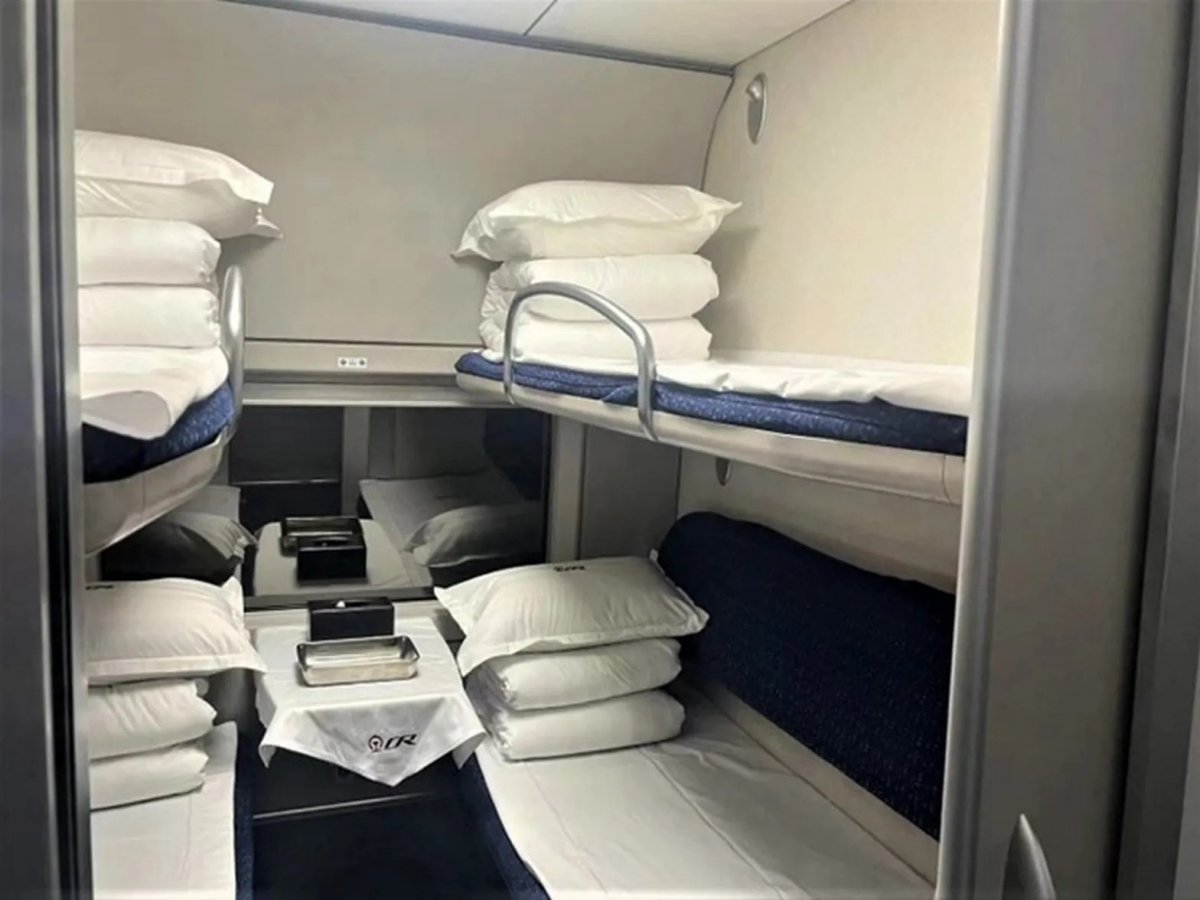Uncommon Knowledge
Newsweek is committed to challenging conventional wisdom and finding connections in the search for common ground.

A train trip from Hong Kong to Beijing that typically takes 24 hours with be cut in half thanks to a new high-speed rail link.
Starting on June 15, Hong Kong is set to open a crucial new tie with mainland China by launching high-speed rail service to Beijing and Shanghai, the two biggest cities in the country. The once-a-day sleeper trains will run from Friday to Monday.
The new service will reduce travel time between Hong Kong and Beijing to 12.5 hours, down from more than a full day. Similarly, journeys to Shanghai will be shortened to 11 hours from the previous 19.5 hours, according to Hong Kong’s Mass Transit Railway Corporation (MTR).
“Normal speed will be upgraded to high-speed rail, the number of seats will be increased, facilities will be newer and more modern, and traveling time will be shortened by half,” said Hong Kong Chief Executive John Lee during a press briefing.
Tickets for the new service went on sale this week, running about $120 for the Beijing service and $88 for Shanghai. Although flights remain faster, the trains run overnight, saving on costs and maximizing travel time. “You also save on hotel accommodation,” Lee added.
According to the MTR, the sleeper trains consist of sixteen cars, accommodating approximately 600 passengers. This includes thirteen sleeper cars, one dining car, and two second-class seating cars. The trains to and from Shanghai Hongqiao station also feature one premium sleeper car.
When purchasing tickets, travelers can choose either upper or lower berths. If traveling with companions, the system will try to arrange for them to be in the same room with adjacent beds, depending on ticket availability. If not, passengers may have to share the room with others.
The sleeper trains are intended to boost tourism and business travel to and from the financial hub of Hong Kong, which is technically part of China but operates under a special administrative agreement. Visitor arrivals have increased since the city reopened its borders earlier this year, but numbers still lag behind pre-pandemic levels. Most visitors are from mainland China, with long-haul travelers being slower to return.

The MTR’s announcement coincides with the launch of a new hospitality drive aimed at “jointly promoting hospitality and reinforcing Hong Kong’s brand as the best tourism destination,” according to a government statement.
The government hopes the new train services will attract more tourists and boost local businesses in the city, which has been impacted by the large-scale protests and unrest in 2019, stringent Covid-19 travel restrictions, and national security laws that have resulted in the detention of numerous activists.
“We should warmly receive visitors to strengthen Hong Kong’s position as the best tourist destination,” said Kevin Yeung, Secretary for Culture, Sports, and Tourism, during the presentation.
Newsweek is committed to challenging conventional wisdom and finding connections in the search for common ground.
Newsweek is committed to challenging conventional wisdom and finding connections in the search for common ground.